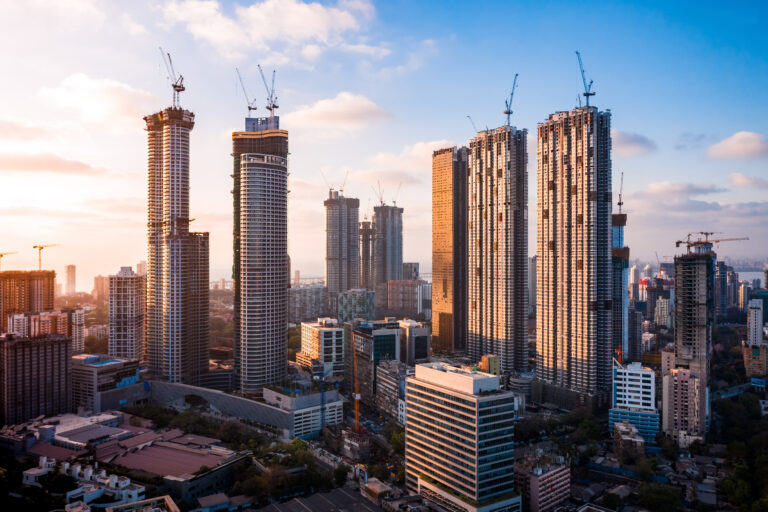As we approach 2025, sustainability and smart technologies are no longer optional in real estate—they are essential elements driving market demand and reshaping the way we design, build, and live in homes. Smart homes, which integrate energy efficiency with cutting-edge technology, are leading the transformation in the sustainable construction sector. This article explores how smart homes are shaping the real estate market, focusing on sustainability trends, innovative technology, and the future of green living.
1. The Rise of Smart Homes in Sustainable Construction
Smart homes are at the forefront of the sustainable construction movement. These homes use integrated technologies to enhance energy efficiency, security, and convenience. By incorporating Internet of Things (IoT) devices, smart homes allow homeowners to control appliances, lighting, heating, and even security systems remotely, optimizing energy usage and reducing waste.
Key Features of Smart Homes in 2025:
- Energy-efficient appliances: Smart homes use advanced appliances that monitor and reduce energy consumption.
- Automated systems: Smart lighting and temperature control systems adjust settings based on occupancy and external conditions.
- Renewable energy integration: Solar panels, battery storage systems, and other renewable technologies are becoming common features, contributing to energy independence.
These technologies not only reduce operational costs for homeowners but also increase the overall value and marketability of properties. With government incentives encouraging the adoption of sustainable practices, smart homes are set to become the norm in new constructions.
2. Eco-Friendly Materials and Green Certifications
A major trend shaping the sustainable construction industry is the use of eco-friendly materials. As environmental awareness grows, developers are increasingly turning to materials that have a lower environmental impact, such as recycled steel, bamboo, and reclaimed wood. These materials help reduce the carbon footprint of construction projects while providing durable and aesthetically appealing structures.
Key Sustainable Practices:
- Green building certifications like LEED and BREEAM are becoming crucial for real estate developers aiming to attract eco-conscious buyers.
- Water-efficient technologies, such as rainwater harvesting systems, are increasingly integrated into modern homes to conserve resources.
Properties with green certifications not only appeal to environmentally aware buyers but also offer long-term financial benefits due to reduced energy and maintenance costs.
3. The Impact of Smart and Sustainable Homes on Property Values
As buyers become more informed about sustainability and technology, homes equipped with smart and green features are experiencing increased demand. Energy-efficient homes with lower utility costs are especially appealing, as they align with the growing consumer interest in reducing environmental impact while saving money.
Why Smart Homes Increase Property Value:
- Energy savings: Homebuyers are drawn to the long-term cost reductions provided by energy-efficient technologies.
- Security and convenience: Advanced security systems, smart locks, and facial recognition technology add an extra layer of protection, making homes more desirable.
As a result, properties with smart home technologies and sustainable features are more likely to increase in value and sell faster compared to traditional homes. This trend is expected to continue in 2025 and beyond
4. Future Trends in Sustainable Construction
Looking forward, innovations in smart home technologies and sustainable construction practices will continue to evolve. Integration of artificial intelligence (AI) to further optimize energy consumption, alongside the expansion of solar energy and battery storage systems, will be key trends driving the future of real estate.
Emerging Trends:
- AI in home automation: AI-powered systems will offer predictive maintenance and real-time adjustments to energy usage, creating more efficient and self-regulating homes.
- Urban sustainability: As urbanization grows, sustainable construction will focus on mixed-use developments that combine residential, commercial, and recreational spaces, fostering community-centric living.
FAQ
1. How are smart homes contributing to sustainability?
Smart homes reduce energy waste through automated systems that manage lighting, heating, and cooling efficiently. They also integrate renewable energy sources like solar panels.
2. What are the benefits of using eco-friendly materials in construction?
Eco-friendly materials reduce the environmental impact of building projects, improve energy efficiency, and can enhance the durability of the property.
3. Do green homes have a higher resale value?
Yes, homes with sustainable features and smart technologies often sell for a higher price due to their energy efficiency, lower operating costs, and advanced amenities.
4. What role does AI play in smart homes?
AI helps automate and optimize energy usage, predict maintenance needs, and improve security, offering homeowners a seamless living experience.
5. What certifications should I look for in a sustainable home?
Look for certifications like LEED (Leadership in Energy and Environmental Design) and BREEAM (Building Research Establishment Environmental Assessment Method), which indicate that a property meets high environmental standards.


